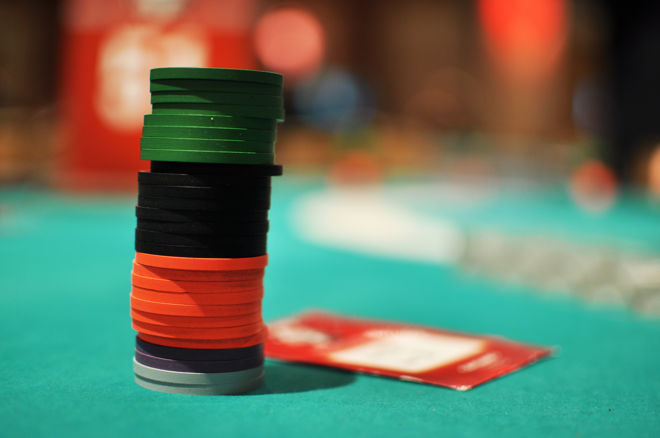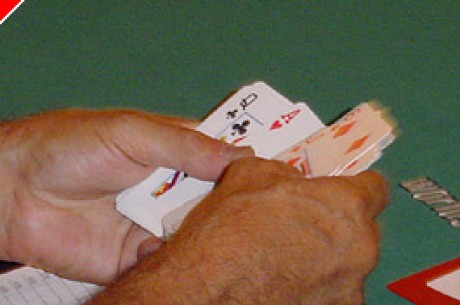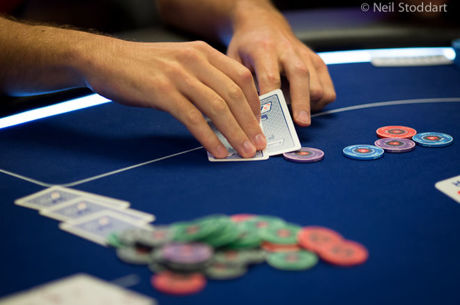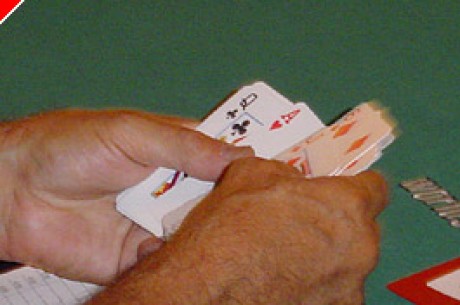Stud Poker Strategy - Playing when Tired

I've played poker of every sort, including stud well into the night and early morning. I've observed friends and foe alike at the poker table at every hour of the day and night. Without a doubt, from my many observations, the greatest drain on the game of the otherwise solid player is fatigue.
Here's how it generally works. I'll use my otherwise successful poker friend Jose as an example.
He and I drive down from Boston to Ledyard Connecticut to play at Foxwoods Resort Casino. It's about a two hour trip - when you account for parking and walking to the poker room. Jim waits for twenty or thirty minutes for a table.
Invariably, the game is good. There are many loose passive players at Foxwoods. His tight/aggressive style is usually successful. So he wins a few hundred dollars in his first few hours of play.
But as the night wears on, fatigue settles in. He becomes less attentive. He calls when he should fold and calls when he should raise. He loses a few hands in a row and fails to win what he should win on a few hands that he wins. His winnings sink and he is now behind.
He is tired, as evidenced by the increasing passivity in his game. But now he is stuck and so is determined to stay until he is at least even. He must get back to even he tells himself - tired though he is. This becomes his mantra - "get to even - get to even". But his play deteriorates as he gets more and more tired. He is in this zone of inattention - waiting for a monster hand to pull him out of the red - failing to play the same tight/aggressive game that brought him his winnings in the first place. He continues to sink into the red, hour after hour - unable to see his play deteriorate. Finally, when he is completely exhausted and severely stuck he gets up, depressed and wasted - financially and physically.
This happens to many, many players in card rooms all over the United States. It happens because the very weariness that sabotages the poker play of the otherwise winning player also inhibits his ability to see what is happening to his own play. It is like drinking and driving. The same alcohol that hurts hinders your ability to drive, hinders your ability to notice that you aren't driving well. And so drunk drivers convince themselves that their driving is excellent.
Some argue that one should not leave or stay in a game based on some predetermined number of hours - rather staying if the game is good or leaving if the game is bad. There is surely something to be said for this. In general it is a good idea to be flexible enough with your schedule to stay in a good game.
The problem is in judging whether a game really is good or not. How perceptive are you after you've been playing to the point of fatigue? How many times do players who are being hammered and who are playing very poorly insist to their friends that they need to stay because the game is "fantastic"?
The problem is that fatigue often comes with an inflated estimate of both how good the game is and how good you are playing. The wearier you are, the better the game seems. Reversing your losses seems just around the corner - all the while you're slowly spinning down the drain. Don't let this happen.
Accordingly, I recommend that just as drivers should set limits to how much they drink before they drive, so too must poker players set limits on their play before they sit down. Plan to leave the table after a set number of hours - no more than three or four. And then leave - noo matter how much you are up or down.. At least walk around for a while to see how you're feeling If, after being away from the game for 20 or 30 minutes you decide that you're feeling fine, great, go back and play for another hour or two. But leave the game; go for that walk; take that break. If you realize that you're not fully awake and alert then just head home as planned.
Ed Note: Paradise Poker have a ton of great stud action. Sign up today!








